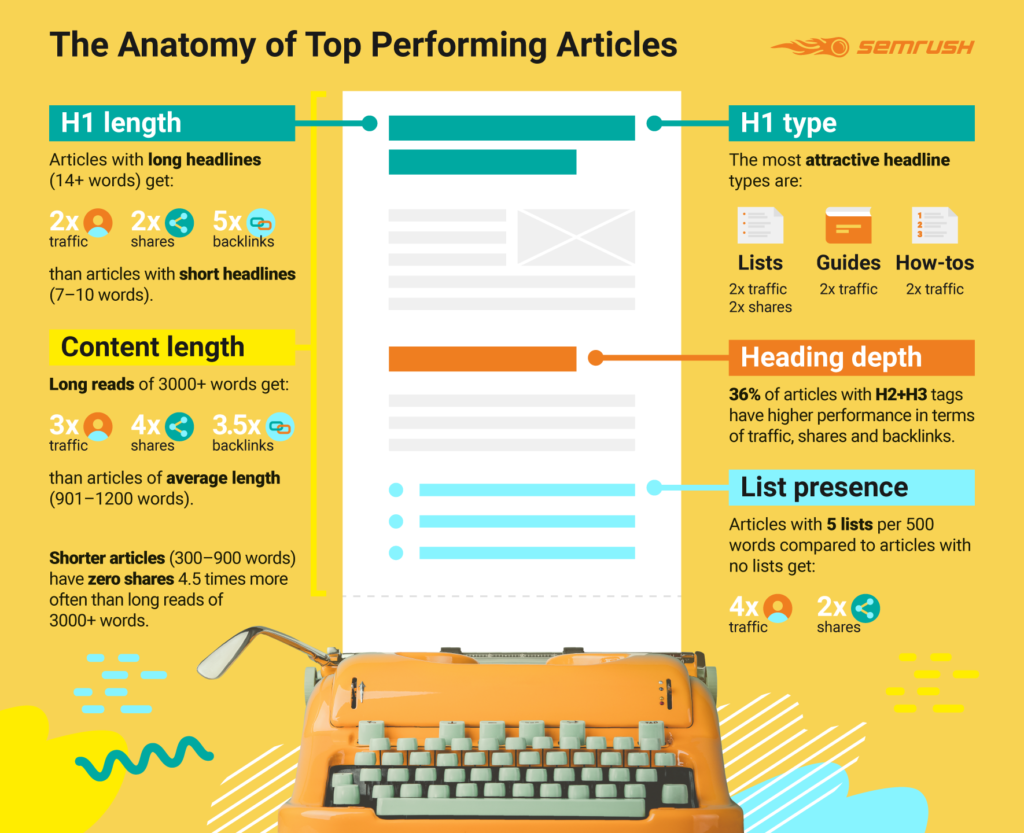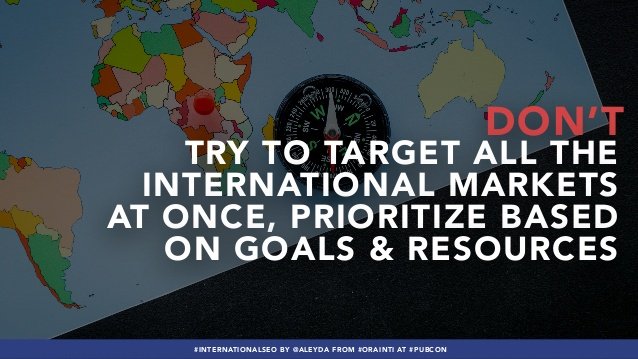SEO and business blog
Read about SEO, digital marketing, website optimisation, check out case studies and learn more about how I run my business!
Get more clicks on mobile results pages
Make your Search Results on Mobile More Clickable and Improve your CTR, Use your Discontinued Products to your Advantage in your E-Commerce SEO, and Scrape Google Search Features with XPath.
Every week I share no more than 3 hands-on resources that I carefully handpick from the top-experts and best practitioners in SEO and digital marketing. You won’t find FOMO inducing theories and convoluted predictions in these posts. I want to help you build long-lasting SEO and digital marketing strategies with proven methods you can implement today. Previous editions can be found here.
⏰ #NOW - WHAT I HAVE BEEN UP TO
This week was all about starting new things:
- working with a new client 🥳
- meetings for (I hope🤞) future collaborations
- planning future trips 💺
- finally making my Google My Business page 📍
- and even making bread for the first time! 🍞
I also participated in last week's #SEMrushchat about Creating Content That Will Drive Results.
👓 #FOCUS - THE ONE THING YOU SHOULD CHECK OUT
Improving CTR (Click Through Rate) is a constant concern of SEOs. Since Google's big updates of the mobile SERP, and with an ever-growing part of searches being done on mobile, we should pay more attention to the specificities of mobile results, and how it can affect the CTR of our websites.
In this article, Ann Smarty gives a breakdown of ways to improve your CTR on mobile. Here are a few of the key elements I found super useful:
- Learn how to write better headlines and include a call to action
- Optimise the images that will be featured directly in the SERP
- Use tools like TextOptimizer to work on your meta description
- Use breadcrumb Schema
There are loads of other useful resources and guides listed in Ann's article, so check it out!
Read "How to Make Your Google Mobile Search Results More Clickable"
📺 #WATCH – THE VIDEO YOU SHOULD HAVE A LOOK AT
Luke Carthy shares in this talk from the Optimisey Meetup how to use your discontinued products to your benefit for SEO.
The products on your e-commerce website will get backlinks through their lifetime. What will your potential customer do if he/she finds a 404 after following a link from his/her favourite blog? Most probably, go somewhere else.
Luke gives many useful techniques to use those out of date URLs for which people may search for, or at least have interest in buying something similar.
https://www.youtube.com/watch?v=w2jQLl20hYo
⚙️ #TOOL - HELPING YOU UP YOUR GAME
Scraping Google Search features using XPath.
... And that's where I lost many readers. 😅
Okay, keep cool, it's gonna be alright.
Let's break that vocabulary down:
- Scraping: a little script/robot/program/automated piece of code is going to read through a page, in this case, a result page, and fetch for you on this page the items you need and put them in a spreadsheet.
- XPath: a syntax that selects items in an XML document.
What's the point?
In the last few years, Google has added a lot of features to result pages, directly pulled from the websites. On top of page titles and meta descriptions, we now have features snippets or position zero, the knowledge panel or related questions - the "people also ask" section. Understanding how the SERP is structured for your queries and what information is pulled in is a great way to figure out what the Google algorithm wants from your website and get ahead of your competition.
How do you set it up? How should you use the gathered data?
For the setup part, I will refer you to the article Patrick Langridge, Head of SEO at Screaming Frog, wrote on the subject. He explains in detail how to use XPath and Screaming Frog to get the data from the related questions section on the SERP and analyse it.
This will help you better understand what your potential customers need from you in terms of information.
Read "How to Scrape Google Search Features Using XPath"
✉️ #SUBSCRIBE - RECEIVE THIS POST IN YOUR INBOX
Do you need help with your digital marketing strategy? Are you planning to work on your website’s SEO? Would you be interested in having me talk at your conference or train your team?
Here are the links to read more about me, check out my former experiences, find out more on the services I provide and contact me.
Latest editions of The Pragmatic SEO

Get more clicks on mobile results pages
Make your Search Results on Mobile More Clickable and Improve your CTR, Use your Discontinued Products to your Advantage in your E-Commerce SEO, and Scrape Google Search Features with XPath....
28 January, 2020

Categorize keywords automatically according to buyer’s intent
Automate Keyword Categorization with Google Sheets and Find the Buyer's Intent, The Anatomy of the Top Performing Articles and Landing Awesome Links with Awesome Outreach Emails....
21 January, 2020

Re-optimize your content with the right tools
How to Use Tools to Re-Optimize your Content with Jeff Baker, Ways to Use Google Sheets for SEO Tasks with Aleyda Solis, and Working Effectively with Developers with Jamie Alberico and Sam Marsden....
14 January, 2020
Categorize keywords automatically according to buyer's intent
Automate Keyword Categorization with Google Sheets and Find the Buyer's Intent, The Anatomy of the Top Performing Articles and Landing Awesome Links with Awesome Outreach Emails.
Every week I share no more than 3 hands-on resources that I carefully handpick from the top-experts and best practitioners in SEO and digital marketing. You won’t find FOMO inducing theories and convoluted predictions in these posts. I want to help you build long-lasting SEO and digital marketing strategies with proven methods you can implement today. Previous editions can be found here.
⏰ #NOW - WHAT I HAVE BEEN UP TO
You know how you sometimes put off a task because you feel it's going to be a complicated one? That's what I did with adding ReCaptcha to my forms. After months of -often hilarious- spam mail in my inbox, I finally took time to get it up and running. 5 minutes. That's all it took. 🤦🏻♀️
I have also been working on SEO packages for potential clients. I plan on publishing information about them soon.
In other news, you are now 12 subscribers to my newsletter! ✉️🙏
👓 #FOCUS - THE ONE THING YOU SHOULD CHECK OUT
When we work on keywords and try to understand how they benefit our website, we look for volumes, rankings and length. As the algorithms comprehend human behaviour better and better, user intent has become a subtle yet key component to look at.
The idea behind user intent is that the context in which the search is made by the user should impact the result. In other words, understanding why the user is making a query will deliver better results.
For example, if you search for "Strasbourg" you could be searching for the weather in Strasbourg, tourism information, or even historical facts. If you search for "Strasbourg hotel", then you are probably more interested in booking a room. That's a transactional query. If you search for "Strasbourg population", you are in an informational process. If you search for "Strasbourg website", you are most probably searching for the exact URL of the city's website, thus your intent is navigational.
So, know you have all your keywords from Google Search Console (or somewhere else) how are you going to figure out the user intent behind each of them? You could totally do that by hand, but Dan Brooks figured out a formula to automate keyword categorization on Google Sheets!
VERY happy today. With a little help from some existing resources I've managed to build a new formula to help automatically categorise keywords based on the users intent... 🙌 🙌 🙌 #keywordresearch #seo 🤓 pic.twitter.com/AMy5HpQ7bx
— Dan Brooks 🤓🔍 (@seodanbrooks) April 16, 2019
In his article Dan explains the whole process of creating the *magic* formula and the resources he used to get to this result.
Read "How to Automatically Categorise Keywords for the Buyer’s Journey"
Related resource: Excel formulas for SEOs: cheatsheet and cell manipulation.
🤓 #READ - THE BEST OF SEO BLOGS
What does the perfect blog post look like? Probably not like the one you are reading now 😅
As part of the Global State of Marketing Report for 2019, SEMrush and Alina Petrova researched the key factors that make articles performant. Below are the key elements of the study like the length and type of H1, the depth of headings, if there are lists in the article and, of course, content length.
In encourage you to go further and read the article to get more in depth in each element, especially when it comes to the link between the number of backlinks and the type of H1. 😉
Read "The Anatomy of Top Performing Articles: Successful vs. Invisible Content – SEMrush Study"
🎧 #LISTEN - THE PODCAST YOU SHOULD LISTEN TO
At the September 2019 BrightonSEO conference, Carrie Rose from RiseatSeven gave a great talk about getting awesome links with awesome outreach emails.
I personally assisted to her talk, and I was really surprised by the amount of available resources online that can be used to make the perfect email that will land an article. With a bit of creativity and research, any brand can get a great backlink!
I suggest you follow the episode with the slides linked below 😉
BrightonSEO - how to create sexy AF outreach emails to land sexy AF links from Carrie RoseRead "Brighton SEO – Carrie Rose slides on creating sexy AF outreach emails to land sexy AF links"
✉️ #SUBSCRIBE - RECEIVE THIS POST IN YOUR INBOX
Do you need help with your digital marketing strategy? Are you planning to work on your website’s SEO? Would you be interested in having me talk at your conference or train your team?
Here are the links to read more about me, check out my former experiences, find out more on the services I provide and contact me.
Latest editions of The Pragmatic SEO
Re-optimize your content with the right tools
How to Use Tools to Re-Optimize your Content with Jeff Baker, Ways to Use Google Sheets for SEO Tasks with Aleyda Solis, and Working Effectively with Developers with Jamie Alberico and Sam Marsden.
Every week I share no more than 3 hands-on resources that I carefully handpick from the top-experts and best practitioners in SEO and digital marketing. You won’t find FOMO inducing theories and convoluted predictions in these posts. I want to help you build long-lasting SEO and digital marketing strategies with proven methods you can implement today. Previous editions can be found here.
⏰ #NOW - WHAT I HAVE BEEN UP TO
In the traditional French way, I have been sending my New Year wishes to my professional contacts a bit late. Well, in France, there's no issue to sending them until late January 🤷♀️ I've had lovely responses from former colleagues and clients, which is great!I have also been in contact with a few people to take on new projects. 🤞As for The Pragmatic SEO, the newsletter is up and running! ✉️ It took me some time to figure out a few details. You can subscribe here.In other news, I had my 30th birthday party this weekend 🎉 Booking a huge manor for a whole 2-day getaway trip with friends and family was definitely a good idea! 🥂
👓 #FOCUS - THE ONE THING YOU SHOULD CHECK OUT
How to determine what content you should re-optimize on your website? How should you re-optimize it? What does content re-optimization does to your rankings?Based on previous studies, content that is being actualized and completed with new information has good chances to rank higher and quicker.In his guide, Jeff Baker explains how to find the keywords that are actually important to your business and how to find the right content to work on while avoiding cannibalization. On top of a complete methodology filled with examples, he also share the tools he uses to go through this process.Read "How to Use Tools to Determine Which Content to Re-Optimize: A Step-by-Step Guide"
⚙️ #TOOL - HELPING YOU UP YOUR GAME
The good thing about SEO is that you get a lot of data. The bad thing about SEO... is that you get a lot of data. To better understand this volume of information and turn it into an actual plan of action, the simplest Google Sheets can do wonders.In her article, Aleyda Solis shares how she uses Google Sheets for SEO tasks. Learn how to validate your 301 redirections, find which pages need links to improve their performance and validate the relevance of your metadata.Read "9 Practical Ways to easily use Google Sheets for SEO tasks"
🎧 #LISTEN - THE PODCAST YOU SHOULD LISTEN TO
Most websites are not a one-person enterprise, and as marketers we are bound to work with those strange creatures that are developers. Okay, I'm getting a bit ahead of myself here. In fact, I live with one, and I came to realize developers were in fact very cool people!If you are into technical SEO, or if you just want to better understand how the internet works, I highly recommend you have a chat once in a while with your dev team. Not only will you learn a lot, but you will also understand how they function and what their priorities are.In this episode of Open Dialog, Sam Marsden chats with Jamie Alberico about her work as a Technical Website Consultant at Not A Robot and how she works effectively with developers.
Head to 23:57 to hear about working with developers. 😉
Do you need help with your digital marketing strategy? Are you planning to work on your website’s SEO? Would you be interested in having me talk at your conference or train your team?Here are the links to read more about me, check out my former experiences, find out more on the services I provide and contact me.
✉️ #SUBSCRIBE - RECEIVE THIS POST IN YOUR INBOX
Latest editions of The Pragmatic SEO

Re-optimize your content with the right tools
How to Use Tools to Re-Optimize your Content, Ways to Use Google Sheets for SEO Tasks and Working Effectively with Developers....15 January, 2020

Site architecture for SEO
A Guide to Site Architecture for SEOs, a Tool to Identify Emerging Topics for your Content and Examples of Fake News for Link Buildings, or Linkbait....07 January, 2020
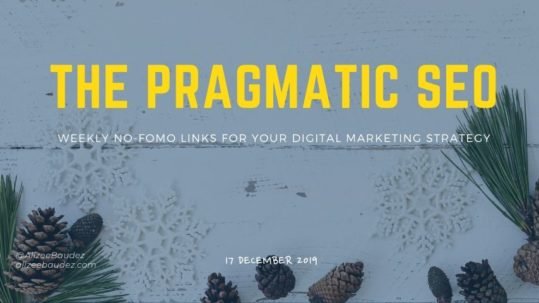
Optimize your images for SEO
A Step-by-Step Guide to Optimizing your Images for SEO, A Whiteboard Friday on Mobile-first ...17 December, 2019
Site architecture for SEO
A Guide to Site Architecture for SEOs, a Tool to Identify Emerging Topics for your Content and Examples of Fake News for Link Buildings, or Linkbait.
Every week I share no more than 3 hands-on resources that I carefully handpick from the top-experts and best practitioners in SEO and digital marketing. You won’t find FOMO inducing theories and convoluted predictions in these posts. I want to help you build long-lasting SEO and digital marketing strategies with proven methods you can implement today. Previous editions can be found here.
⏰ #NOW - WHAT I HAVE BEEN UP TO
HELLO 2020!! 🎉 Happy New Year to all of you. May 2020 be the perfect beginning to a new decade for you, I wish you a many fun projects and great moments to remember. The past weeks have been dedicated to friends and family. The holidays are a special moment for us as we celebrate Christmas nearly every day for a week with our families, then head on to a 2-day trip for New Years Eve, and finally celebrate my birthday on 2nd January. That’s right, I just turned 30! 🥳⚠️NEW! ⚠️ You can now subscribe to The Pragmatic SEO and receive your 3 handpicked resources every Tuesday directly in your inbox! Of course, your contact information won’t be shared with anyone, and I will only use your email to send you The Pragmatic SEO. If you’re not happy with it, just hit “Unsubscribe”.
The past weeks have been dedicated to friends and family. The holidays are a special moment for us as we celebrate Christmas nearly every day for a week with our families, then head on to a 2-day trip for New Years Eve, and finally celebrate my birthday on 2nd January. That’s right, I just turned 30! 🥳⚠️NEW! ⚠️ You can now subscribe to The Pragmatic SEO and receive your 3 handpicked resources every Tuesday directly in your inbox! Of course, your contact information won’t be shared with anyone, and I will only use your email to send you The Pragmatic SEO. If you’re not happy with it, just hit “Unsubscribe”.
✉️ #SUBSCRIBE - RECEIVE THIS POST IN YOUR INBOX
👓 #FOCUS - THE ONE THING YOU SHOULD CHECK OUT
Site architecture, or how your website is structured, impact the way Googlebot is going to crawl and understand how you organize your content. The more important the information is for your business, the easiest it should be for users and bots to find.If the concept is pretty easy to understand and implement on a small website, it can create many headaches when it comes to larger sites with thousands of pages.Richard Baxter is the founder of BuiltVisible, a great agency based in London, with whom I had an interview a few years ago that I really enjoyed. 😉In this in-depth guide, he gives actionnable steps to understand how your website's architecture is impacting crawl-ability and your rankings, and how to remediate to common issues you will have identified.Read "An SEO’s guide to site architecture"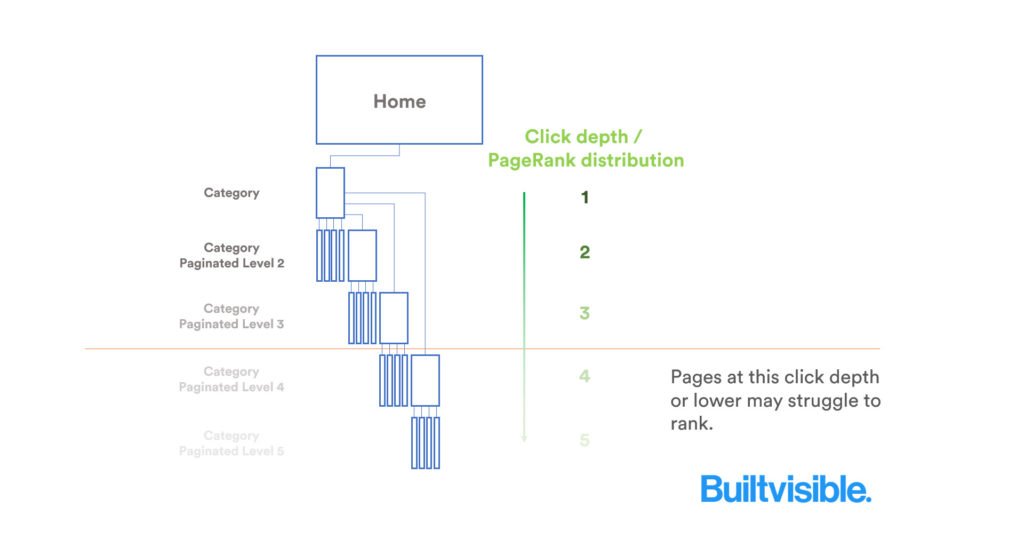
⚙️ #TOOL – Helping you up your game
Exploding Topics is a cool new tool that analyzes searches and conversations on the internet to understand what topics are starting to trend. Topics are sorted by categories. The idea for this tool is to help content creators come up with innovative and trending content ideas.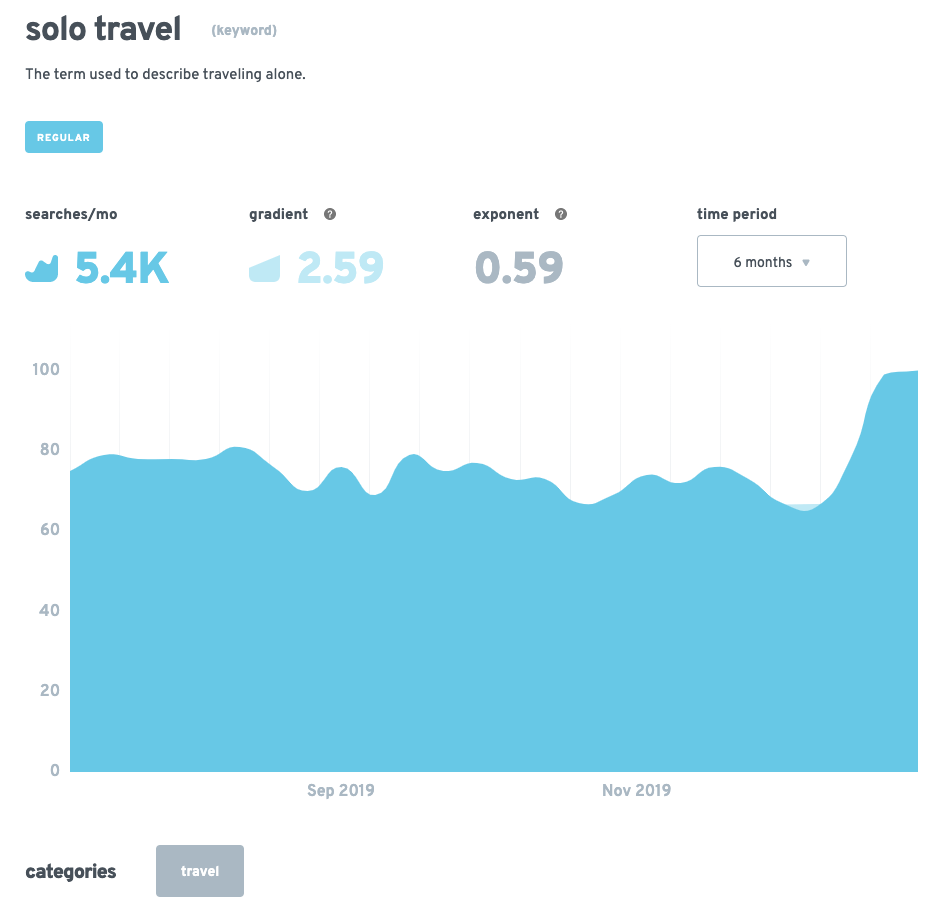 The graph above shows how the topic "solo travel" has been more trending this past month compared to the past semester. This tool was developed by Backlinko 's founder Brian Dean and Josh Howarth.
The graph above shows how the topic "solo travel" has been more trending this past month compared to the past semester. This tool was developed by Backlinko 's founder Brian Dean and Josh Howarth.
📺 #WATCH – THE VIDEO YOU SHOULD HAVE A LOOK AT
Let's finish this first edition of the year on a lighter note: making fake news for links. In 2019's SearchLeeds, Oliver Brett, International SEO Rockstar (his words, not mine 😅) at Screaming Frog, gave a talk about his team's original link acquisition techniques.The idea behind fake news for links, or linkbait, is to create content more or less related to the company that can be funny, unexpected or even cringy. Fake products, unexpected news and incredible offers (where you don't make any promise of course) are interesting techniques to dig in.Just remember to be funny in your writing, but realistic in your visuals, so that people want to click and link to your page.https://youtu.be/6OXpTMaPIlc
Do you need help with your digital marketing strategy? Are you planning to work on your website’s SEO? Would you be interested in having me talk at your conference or train your team?Here are the links to read more about me, check out my former experiences, find out more on the services I provide and contact me.
Latest editions of The Pragmatic SEO

Site architecture for SEO
Every week I share no more than 3 hands-on resources that I carefully handpick from the top-experts and best practitioners in SEO and digital marketing. You won’t find FOMO inducing theories and convoluted predictions in these posts. I want to help you build long-lasting SEO and digital marketing......07 January, 2020

jan 7
A Step-by-Step Guide to Optimizing your Images for SEO, A Whiteboard Friday on Mobile-first ...07 January, 2020

jan 7
A Step-by-Step Guide to Optimizing your Images for SEO, A Whiteboard Friday on Mobile-first ...07 January, 2020
Optimize your images for SEO
A Step-by-Step Guide to Optimizing your Images for SEO, A Whiteboard Friday on Mobile-first
Every week I share no more than 3 hands-on resources that I carefully handpick from the top-experts and best practitioners in SEO and digital marketing. You won’t find FOMO inducing theories and convoluted predictions in these posts. I want to help you build long-lasting SEO and digital marketing strategies with proven methods you can implement today. Previous editions can be found here.
⏰ #Now - What I have been up to
As I am now settled in Strasbourg, France, I'm getting back on Meetup to find new networking opportunities and ways to connect with other freelancers. Networking has always been a tricky thing for me so I'm definitely working on it for 2020!I tried a hack for Google My Business posts this week. I read about it on Reddit (couldn't find the post, sorry). Apparently, posting just a photo and no text would be seen by users as a huge image, thus giving more visibility to the post. Unfortunately it did not work for the listing I manage and I believe it was just another UX test from Google. It's all trial and error, right? Please let me know if you try this too and how it turned out 😉On another note, I have also been making one gingerbread a week for the past month, and never took time to post it on #SEObread 🤦🏻♀️
👓 #Focus - The one thing you should check out
A big part of SEO is content, and an important part of content are images. They attract users and make your page more accessible and engaging. They are also responsible for acquiring organic traffic, especially in niches where infographics, step-by-step pictures and product photography are essential.In this guide, Isaac Justesen provides 9 Steps to Optimize Images for SEO, guiding you through tools to resize your images on several platforms, good practices in files names, alt tags and titles as well as ways to improve your captions.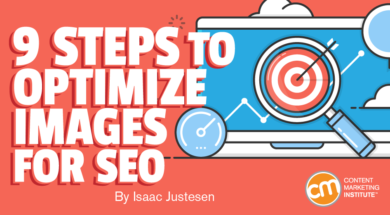
🤓 #Read - The best of SEO blogs
In one of his famous Webmaster Hangouts, John Mueller gave hints on Dealing with Low Traffic Pages. Roger Montti summed up the key elements in his article on Search Engine Journal.In a nutshell, there are two approaches to this:
- Remove non-performing content
- Improve existing content
Both approaches are valid, but choosing one will depend on your data. Speaking of data, John Mueller also recommends considering other metrics than just Page Views, as those can be misleading on low-traffic pages.
🤓 #Read - The best of Content Marketing blogs
When it comes to content, quality is king. But that doesn't mean you should compromise on your formatting, as this will affect how long your readers will spend on your page (and your bounce rate). In her article about 9 Painful Blog Formatting Mistakes That Will Ruin the Best Content, Gill Andrews goes through the common mistakes in blog formatting and best practices for your content.
Do you need help with your digital marketing strategy? Are you planning to work on your website’s SEO? Would you be interested in having me talk at your conference or train your team?Here are the links to read more about me, check out my former experiences, find out more on the services I provide and contact me.
Latest editions of The Pragmatic SEO

Site architecture for SEO
A Guide to Site Architecture for SEOs, a Tool to Identify Emerging Topics for your Content and Examples of Fake News for Link Buildings, or Linkbait....07 January, 2020

Optimize your images for SEO
A Step-by-Step Guide to Optimizing your Images for SEO, A Whiteboard Friday on Mobile-first ...17 December, 2019

Improving Technical SEO Audits
A Methodology to Technical SEO Audits, How to Deal with Low Traffic Pages and Avoiding Formatting Mistakes in your Blog Posts...10 December, 2019
✉️ #SUBSCRIBE - RECEIVE THIS POST IN YOUR INBOX
Improving Technical SEO Audits
A Methodology to Technical SEO Audits, How to Deal with Low Traffic Pages and Avoiding Formatting Mistakes in your Blog Posts
Every week I share no more than 3 hands-on resources that I carefully handpick from the top-experts and best practitioners in SEO and digital marketing. You won’t find FOMO inducing theories and convoluted predictions in these posts. I want to help you build long-lasting SEO and digital marketing strategies with proven methods you can implement today. Previous editions can be found here.
⏰ #Now - What I have been up to
I recently started working on local SEO for a client and diving deeper in Google My Business. I also made some interesting contacts with last week's post... More on that in a few weeks. I am preparing an article looking back at my 2019 form a marketing standpoint: things I did, events I participated in and key moments for my professional activities.On that note, I am looking for new projects! Feel free to contact me if you hear about an SEO/digital marketing consultancy opportunity. 😊
👓 #Focus - The one thing you should check out
Barry Adams explained his methodology for Technical SEO Audits at the Optimisey Meetup. He focuses primarily on the technology and relevancy of the website, meaning how the website is crawled and then indexed. In his presentation, he drives us through the different steps he takes for his technical SEO Audits and what elements are important to take into consideration.The emphasis is made on how audits are useful to clients, where they come in the process of improving the website, what data sets will actually be useful and what tools you can use to improve your technical audits.https://youtu.be/OOTaHjM8DBg
🤓 #Read - The best of SEO blogs
In one of his famous Webmaster Hangouts, John Mueller gave hints on Dealing with Low Traffic Pages. Roger Montti summed up the key elements in his article on Search Engine Journal.In a nutshell, there are two approaches to this:
- Remove non-performing content
- Improve existing content
Both approaches are valid, but choosing one will depend on your data. Speaking of data, John Mueller also recommends considering other metrics than just Page Views, as those can be misleading on low-traffic pages.
🤓 #Read - The best of Content Marketing blogs
When it comes to content, quality is king. But that doesn't mean you should compromise on your formatting, as this will affect how long your readers will spend on your page (and your bounce rate). In her article about 9 Painful Blog Formatting Mistakes That Will Ruin the Best Content, Gill Andrews goes through the common mistakes in blog formatting and best practices for your content.
Do you need help with your digital marketing strategy? Are you planning to work on your website’s SEO? Would you be interested in having me talk at your conference or train your team?Here are the links to read more about me, check out my former experiences, find out more on the services I provide and contact me.
Latest editions of The Pragmatic SEO

Site architecture for SEO
A Guide to Site Architecture for SEOs, a Tool to Identify Emerging Topics for your Content and Examples of Fake News for Link Buildings, or Linkbait....07 January, 2020

Optimize your images for SEO
A Step-by-Step Guide to Optimizing your Images for SEO, A Whiteboard Friday on Mobile-first ...17 December, 2019

Improving Technical SEO Audits
A Methodology to Technical SEO Audits, How to Deal with Low Traffic Pages and Avoiding Formatting Mistakes in your Blog Posts...10 December, 2019
✉️ #SUBSCRIBE - RECEIVE THIS POST IN YOUR INBOX
Set your priorities straight for International SEO
Top Do's and Dont's for International SEO, How to do Competitor Research in SEO and a step-by-step guide to pruning URLs in SEMrush.
Every week I share no more than 3 hands-on resources that I carefully handpick from the top-experts and best practitioners in SEO and digital marketing. You won’t find FOMO inducing theories and convoluted predictions in these posts. I want to help you build long-lasting SEO and digital marketing strategies with proven methods you can implement today. Previous editions can be found here.
⏰ #Now - What I have been up to
This week was an admin week, dealing with a bit of taxes and some upgrades on this website. Thanks to some great feedback I got from Amelie Sörensen, I made the links a bit more readable, and I updated/upgraded some backend plugins. Next step is to add a subscription option to this blog post series and have it automatically sent as a newsletter.I also had a great time reading about The Metaphysics and Linguistics of Emoji in an article shared by Jamie Alberico. The use of emoji through our everyday communication with one another is a topic I have been exploring and learning about since 2014 when my classmate and best friend started working on this topic for his Master’s thesis. If you have ever wondered how the different styles of one emoji on different devices can impact the emotion created within the conversation, this is worth a read.
👓 #Focus - The one thing you should check out
Aleyda Solís participated in the latest edition of PubCon and presented her list of Top Do's and Dont's for International SEO. Below are a few of her recommendations.
All the details for these recommendations can be found in Aleyda's slides from the presentation.PS: Aleyda also has a YouTube channel you should check out 😉
📺 #Listen - The podcast you should listen to
Competitor research in SEO can be a great opportunity for you to adapt your content. In this episode of the SEO SAS Podcast, Sarah and Hannah discuss what are the benefits of competitor research from keeping an eye on their performance to identifying new ideas for your content. They also talk about the items you should look at when doing competitor research, from featured snippets to backlinks and topic clustering.Get right into the heart of the podcast at 2:50.
🤓 #Read - The best of SEO blogs
A few weeks ago I shared a post about removing URLs from indexing to optimize the crawl budget. Kevin Indig shared a step-by-step guide to pruning your URLs with SEMrush.The guide is very thorough with helping you understand which URLs and underperforming and what you should do with them. Apart from setting them to meta=noindex, you can also merge similar content, have 301 redirects from one page to the other, or work on updating/upgrading the content.
Do you need help with your digital marketing strategy? Are you planning to work on your website’s SEO? Would you be interested in having me talk at your conference or train your team?Here are the links to read more about me, check out my former experiences, find out more on the services I provide and contact me.
Latest editions of The Pragmatic SEO

Set your priorities straight for International SEO
Top Do's and Dont's for International SEO, How to do Competitor Research in SEO and a step-by-step guide to pruning URLs in SEMrush....03 December, 2019

How to use Google Analytics to track your SEO efforts
Use Google Analytics to track your SEO efforts, learn some smart Link Acquisition Tactics and learn about Content Hubs...28 November, 2019
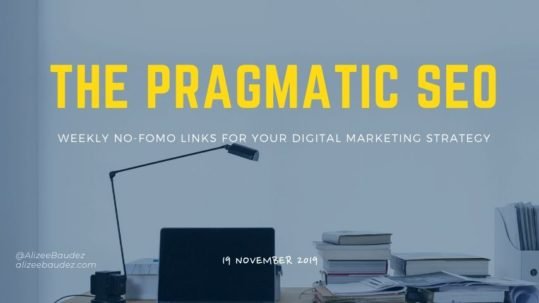
Remove 72% of URLs? A crawl budget case study
An in-depth case study on Crawl Budget, a guide to Squeeze Pages and a dive into Structured Data....19 November, 2019
